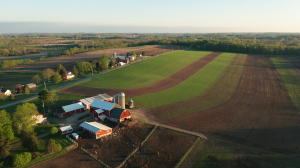por
John R. Fischer, Senior Reporter | January 30, 2024

The ARPA-H will design a mobile imaging vehicle to visit and provide care to rural communities across the U.S.
The Advanced Research Projects Agency for Health (ARPA-H), an independent research funding agency within the National Institutes of Health that invests in breakthrough technologies and applications for proactive and future health needs, has announced that it will design a multifunctional, rugged electric mobile imaging vehicle to provide care and medical screening access lacking in rural communities across the U.S.
The announcement was part of the official launch in January of the agency’s Platform Accelerating Rural Access to Distributed & InteGrated Medical care (PARADIGM) program, designed to improve early detection and management, which are key priorities of the Biden Cancer Moonshot Mission.
Lack of funding, along with the pandemic and various other factors, has been the primary reason for the shutdown of several rural hospitals and healthcare facilities. Additionally, many individuals lack sufficient means of transport, further limiting their ability to access care and leaving them vulnerable and at higher risk of their diseases advancing and mortality.




Ad Statistics
Times Displayed: 36525
Times Visited: 979 Stay up to date with the latest training to fix, troubleshoot, and maintain your critical care devices. GE HealthCare offers multiple training formats to empower teams and expand knowledge, saving you time and money
ARPA-H will construct the mobile platform with the help of medical and technology experts to provide hospital-level care, including advanced imaging tests, multi-cancer screenings, perinatal care, and essential medical services for conditions such as heart disease, respiratory disease, cancer, stroke, and other serious conditions.
The agency plans to use the vehicle as an integrated platform that:
- Will harmonize data within a single system by connecting on-board and remote medical devices with any EHR system and use the combined information to treat a wide range of conditions
- Provide access to imaging facilitated by mini CT scanners on board the vehicle
- Provide healthcare workers with the means to perform additional capabilities beyond their usual training with intelligent task guidance software
“We need to fundamentally shift how care is provided to rural Americans, and PARADIGM intends to do this by creating a scalable health delivery system outside the walls of a hospital,” said ARPA-H PARADIGM program manager Dr. Bon Ku in a statement.
The ARPA-H was
formed in 2022 with the passage of the Advanced Research Projects Agency-Health (ARPA-H) Act by Congress, to accelerate biomedical innovation and conduct high-potential, high-impact biomedical and health research that cannot be accomplished with common and traditional research methods in a range of areas, from those in molecular fields to societal everyday health challenges and trends.
It will work with local communities to ensure the platform is capable of addressing specific healthcare issues and concerns that different patient populations are prone to experience.

